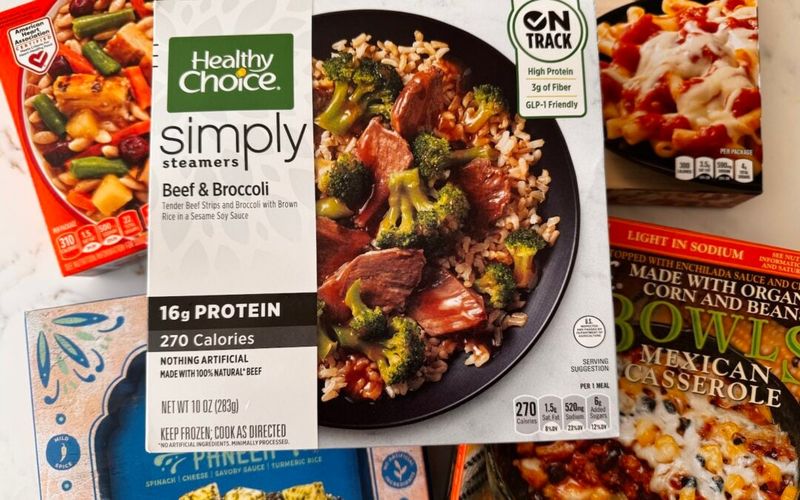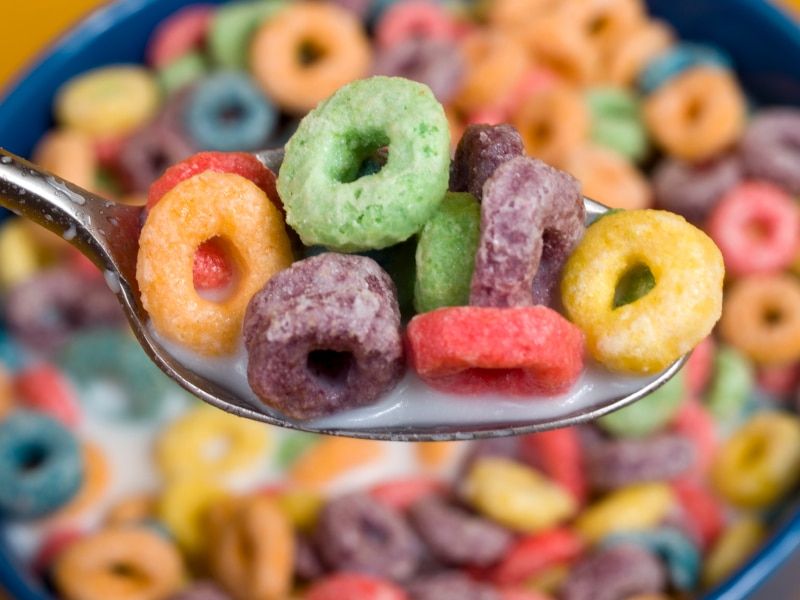As we age, our nutritional needs change, and certain foods may no longer serve us as they once did. Rethinking your diet after 60 is crucial for maintaining energy, brain health, and overall well-being. Below, we’ve highlighted 15 foods you might want to reconsider in your daily diet.
Each item comes with an engaging description, actionable advice, and even an illustrative image prompt to visualize your potential new lifestyle. Embrace this guide to foster a healthier and more vibrant life well into your golden years.
1. Alcohol
Alcohol consumption, even in moderation, can have amplified effects on the body after 60. It may interfere with medications and affect liver health.
Consider reducing intake or choosing non-alcoholic beverages more frequently. These options reduce potential health risks and still provide social enjoyment.
Moderating alcohol intake protects liver health and supports a healthier lifestyle, ensuring more memorable and active years ahead.
2. Sugary Drinks
Sugary drinks, once a casual indulgence, can significantly impact your health after 60. These beverages are filled with empty calories and can lead to weight gain and elevated blood sugar levels.
Instead, consider hydrating with water, infused with a splash of lemon or fresh mint for flavor. This simple switch can help manage your weight and improve your overall hydration.
Cutting down on sugary drinks also reduces your risk of developing type 2 diabetes and can enhance your heart health. Replace soda with healthier alternatives and notice the positive changes in your body.
3. Processed Meats
Processed meats, such as bacon and sausages, are best minimized after 60. These products are high in sodium and preservatives, which can exacerbate heart conditions and hypertension.
Opt for lean protein sources like skinless chicken, turkey, or plant-based proteins. These alternatives support muscle health and provide essential nutrients without the added salts.
Reducing processed meat intake can also lower your risk of colorectal cancer. Making conscious choices about your protein sources contributes to both longevity and vitality.
4. Refined Grains
Refined grains, including white bread and pasta, may not offer the nutritional benefits needed in later years. They lack fiber and essential nutrients, potentially leading to digestive issues and spikes in blood sugar.
Whole grains, such as brown rice and whole wheat, are excellent alternatives. They offer fiber, aiding in digestion, and help maintain stable energy levels.
By choosing whole grains over refined options, you support heart health and prevent spikes in glucose levels, creating a balanced diet for a fulfilling life.
5. Salt-Laden Snacks
Salt-laden snacks, like chips and salted nuts, can negatively affect blood pressure and heart health, especially after 60. The excess sodium can lead to fluid retention and increased blood pressure.
Consider snacking on unsalted nuts, fruits, or vegetables for a healthier alternative. These choices are rich in nutrients and provide longer-lasting energy.
Replacing salty snacks with nutritious ones can help manage blood pressure and promote better heart health, contributing to a more active lifestyle as you age.
6. Fried Foods
Fried foods, though tasty, can be detrimental as you age. They are often high in unhealthy fats and calories, leading to weight gain and increased cholesterol levels.
Opt for baked or grilled options instead. These methods retain flavor without adding unwanted fats, supporting heart health.
Swapping fried foods for healthier alternatives helps maintain a healthy weight and reduces the risk of cardiovascular diseases, encouraging a vibrant and active lifestyle.
7. High-Fat Dairy
High-fat dairy products, like whole milk and certain cheeses, can contribute to elevated cholesterol levels and heart issues post-60. These items are rich in saturated fats that need reconsideration.
Switching to low-fat or non-dairy alternatives, such as almond milk or low-fat yogurt, can be beneficial. These options provide essential calcium and vitamin D without the extra fats.
Making mindful dairy choices supports heart health and can lead to a more balanced diet, aiding in maintaining vitality and wellness as you age.
8. Artificial Sweeteners
Artificial sweeteners may seem like a healthier choice, but they can cause digestive discomfort and may even affect metabolism. After 60, it’s important to consider natural alternatives.
Honey or stevia can sweeten naturally, providing subtle flavors without the adverse effects. These options are gentler on your digestive system.
By avoiding artificial sweeteners, you support a healthy metabolism and digestive health, contributing to overall well-being and a more enjoyable diet.
9. Canned Soups
Canned soups, convenient as they are, often contain high levels of sodium and preservatives. These can aggravate hypertension and aren’t ideal post-60.
Preparing homemade soups allows you to control the ingredients, ensuring they’re fresh and nutritious. Add plenty of vegetables for added fiber and flavor.
Transitioning to homemade alternatives enhances nutrient intake and helps manage blood pressure, while promoting culinary creativity and enjoyment.
10. Sweets and Pastries
Sweets and pastries, although delightful, are packed with sugars and fats that can impact health significantly after 60. They may lead to weight gain and blood sugar issues.
Opt for fruit-based desserts or small portions to satisfy cravings without the negative effects. These choices offer nutrients and antioxidants beneficial for aging.
Limiting sweets helps manage weight and blood sugar, supporting a balanced diet that’s crucial for maintaining energy and health.
11. White Rice
White rice, a staple for many, lacks the fiber and nutrients that whole grains offer. Consuming it frequently can lead to spikes in blood sugar and reduced energy.
Substitute white rice with quinoa or brown rice for a nutritious alternative. These grains provide necessary fiber and enhance digestive health.
Choosing whole grains over white rice supports stable blood sugar levels and provides sustained energy, essential for an active life post-60.
12. Energy Drinks
Packed with caffeine and sugar, energy drinks may give a quick boost but often lead to crashes, jitters, and sleep disturbances — especially as we age.
Frequent consumption can strain the heart and disrupt healthy sleep patterns, both of which are vital for maintaining vitality after 60.
Instead, try green tea or a small cup of coffee for a gentler lift. Natural energy comes best from quality sleep, hydration, and a nutrient-rich diet — not from a can.
13. Margarine and Hydrogenated Oils
Once marketed as a healthy butter alternative, margarine and hydrogenated oils often contain trans fats that are harmful to heart health.
These fats can raise bad cholesterol, lower good cholesterol, and increase inflammation — all concerns that become more pressing with age.
Opt for healthier fats like olive oil, avocado oil, or small amounts of real butter. Making the switch supports heart function and helps reduce the risk of chronic disease.
14. High-Sodium Frozen Meals
Frozen meals may offer convenience, but they often hide excessive amounts of sodium that can elevate blood pressure and cause fluid retention.
As kidney function naturally slows with age, regulating salt intake becomes even more crucial.
Look for low-sodium versions or batch-cook homemade meals you can freeze and reheat. You’ll gain better control over ingredients and support heart and kidney health in the process.
15. Sugary Breakfast Cereals
Colorful cereal boxes may be nostalgic, but many varieties are loaded with added sugar and refined grains that offer little nutritional value.
These cereals can spike blood sugar and leave you feeling sluggish by mid-morning.
Swap them out for high-fiber options like steel-cut oats or bran flakes topped with fresh fruit. A better breakfast means more stable energy, improved digestion, and a stronger start to your day.















Leave a comment